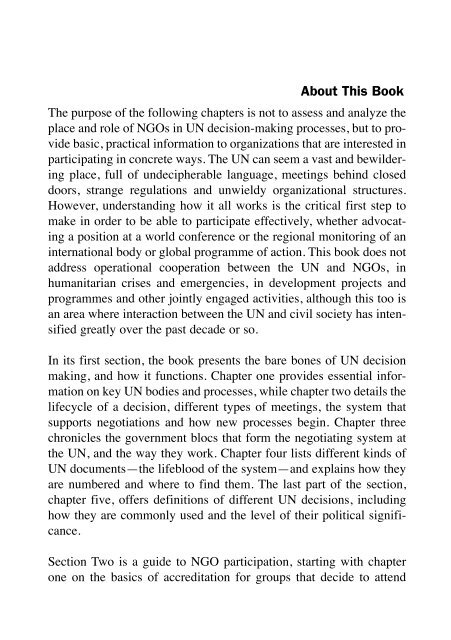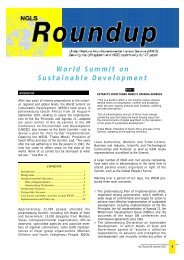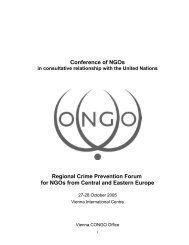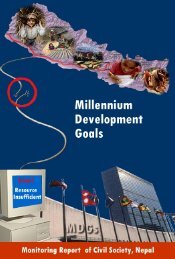Intergovernmental Negotiations And Decision Making At The - NGLS
Intergovernmental Negotiations And Decision Making At The - NGLS
Intergovernmental Negotiations And Decision Making At The - NGLS
- No tags were found...
You also want an ePaper? Increase the reach of your titles
YUMPU automatically turns print PDFs into web optimized ePapers that Google loves.
About This Book<strong>The</strong> purpose of the following chapters is not to assess and analyze theplace and role of NGOs in UN decision-making processes, but to providebasic, practical information to organizations that are interested inparticipating in concrete ways. <strong>The</strong> UN can seem a vast and bewilderingplace, full of undecipherable language, meetings behind closeddoors, strange regulations and unwieldy organizational structures.However, understanding how it all works is the critical first step tomake in order to be able to participate effectively, whether advocatinga position at a world conference or the regional monitoring of aninternational body or global programme of action. This book does notaddress operational cooperation between the UN and NGOs, inhumanitarian crises and emergencies, in development projects andprogrammes and other jointly engaged activities, although this too isan area where interaction between the UN and civil society has intensifiedgreatly over the past decade or so.In its first section, the book presents the bare bones of UN decisionmaking, and how it functions. Chapter one provides essential informationon key UN bodies and processes, while chapter two details thelifecycle of a decision, different types of meetings, the system thatsupports negotiations and how new processes begin. Chapter threechronicles the government blocs that form the negotiating system atthe UN, and the way they work. Chapter four lists different kinds ofUN documents—the lifeblood of the system—and explains how theyare numbered and where to find them. <strong>The</strong> last part of the section,chapter five, offers definitions of different UN decisions, includinghow they are commonly used and the level of their political significance.Section Two is a guide to NGO participation, starting with chapterone on the basics of accreditation for groups that decide to attend
















